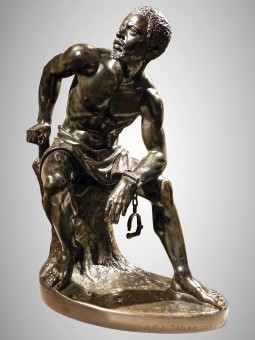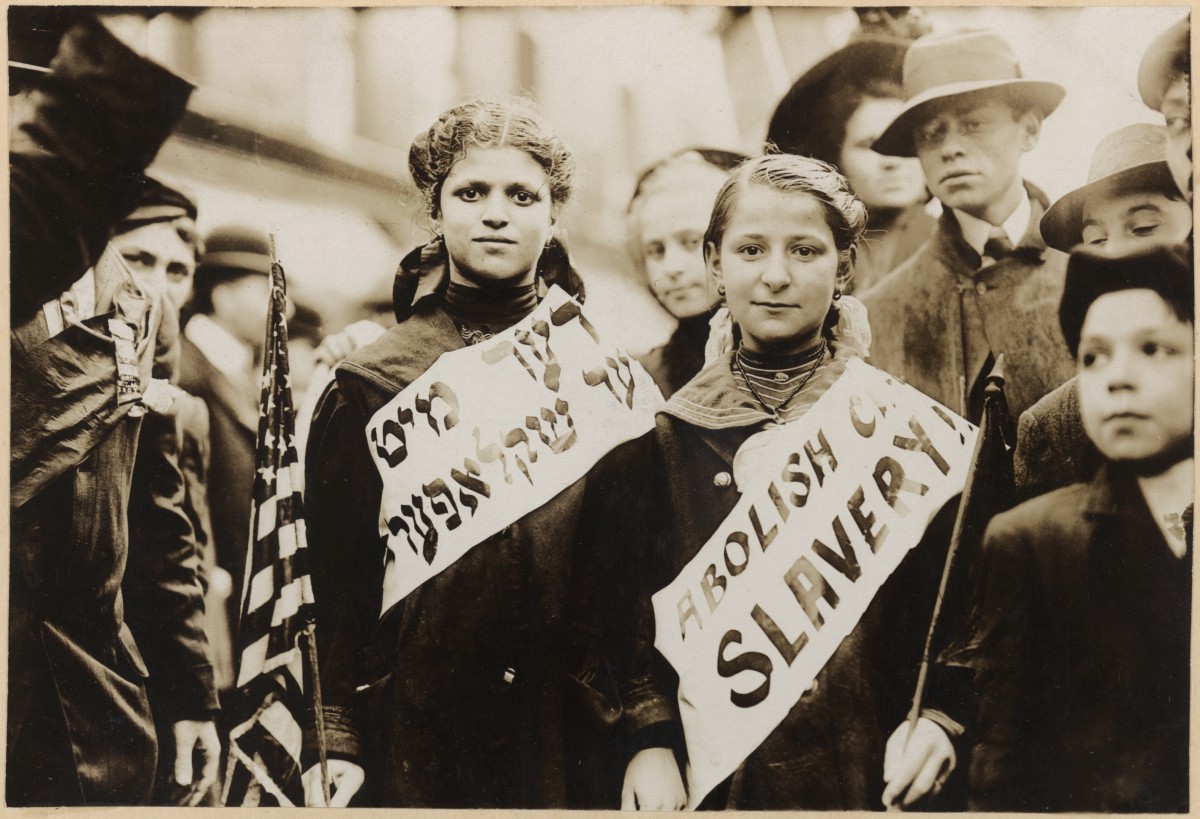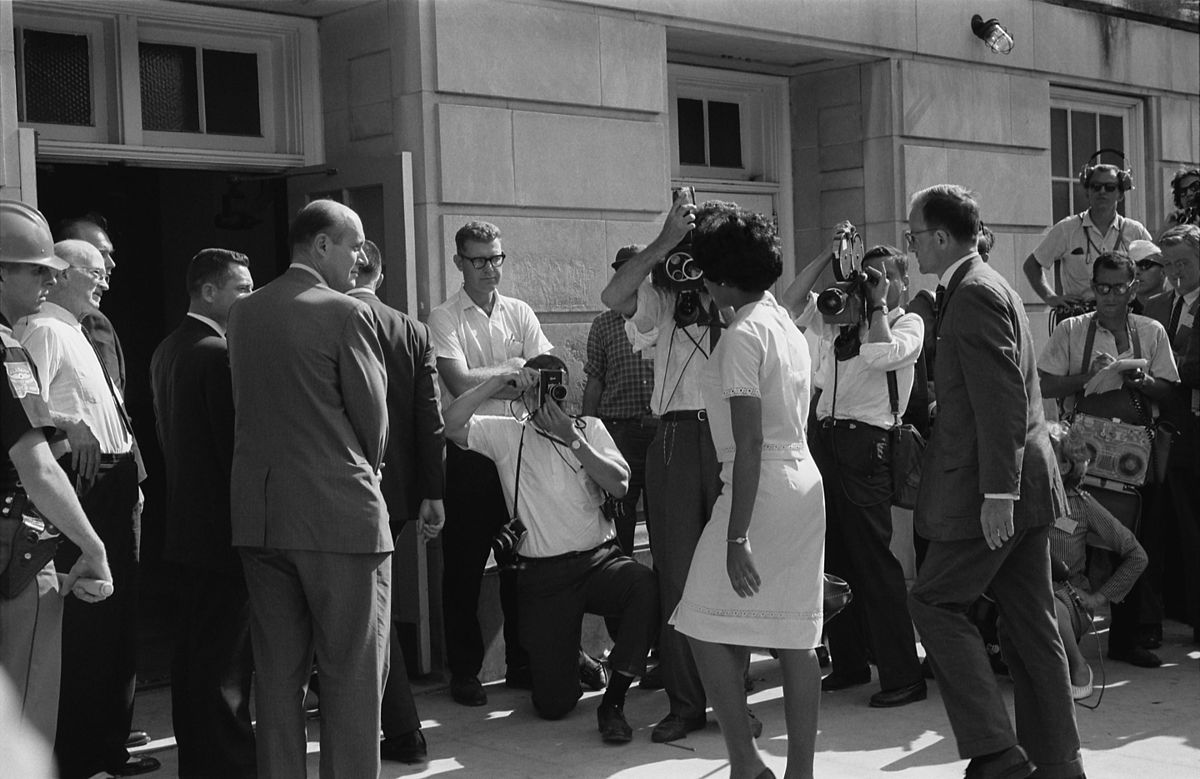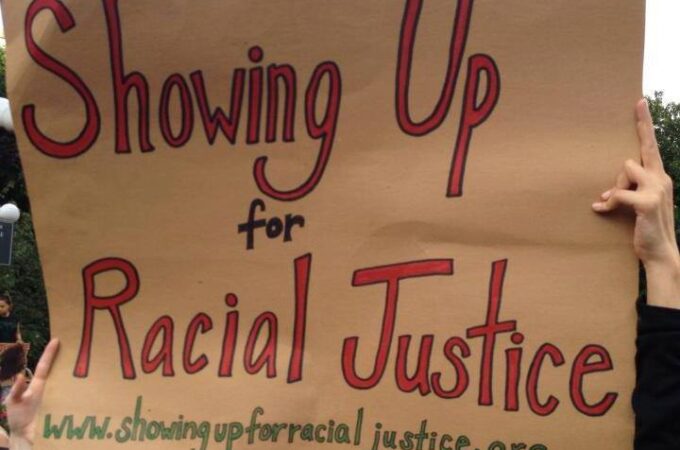What’s driving today’s polarization around race? And what’s the answer?
Two opposite answers—two narratives, if you will—are unfolding. One emphasizes systemic injustice and institutional racism. It views the problems black people face as sourced outside their community and attributes these problems to historic slavery and pervasive, systemic white oppression.
The other narrative emphasizes the importance of personal responsibility; evil is rooted in human hearts. Yes, white racism persists, but much bigger challenges confront the black community, challenges that can be overcome by the actions and decisions of black people in ways that are not ultimately dependent on the actions of white people.
Here’s the final post in our series, A Dialogue on Racism and Christian Racial Reconciliation.
~
[Note: This is part 2 of Dennae’s final response. Go here to read part 1.]
4) Plank/Speck. You mention this and yet make no mention of the “plank” you have discovered in your own worldview, and in multiple places you uncritically link Christianity to American Liberalism. You make statements such as, “Ideologies that draw the good vs. evil line between different groups are not just wrong, they are dangerous.” But then you position the current racial justice movement as evil (because they are influenced by postmodern views of justice) vs. the good (American Liberalism). Do you see the very behavior you are worried about in progressive social movements is exhibited in your own engagement on this topic?
I have no problem affirming Keller’s critique on CRT, especially in light of his definition of biblical justice. But why are you spending so much time defending American Liberalism? Even if it is a healthier system. Why nuance or minimize American slavery? Why are you shifting blame of American sins to sins in other countries and times? Why downplay White Supremacy and White Evangelical participation in White Supremacy?
We ask, “who are your people?” because you seem more concerned to defend American Liberalism and protect against Progressivism than leading your followers into a season of repentance and renewal in the gospel during America’s present awakening to racial injustice. Are followers of your organization more likely to be swept up by CRT, or to somehow confuse American Liberalism with Christianity? And even if their children are going to be more tempted by unhealthy aspects of CRT, is the way to articulate  and form the next generation in the gospel going to be accomplished by trying to position American Liberalism over against CRT? Or are we instead to demonstrate how the gospel confronts both? And since it confronts both, should we not model humility by repenting of the broken worldviews most dominant in ourselves and our own evangelical culture? This is the intent of the plank/speck passage. It is only from this position that we will really have any credibility to address the problems with progressive ideology.
and form the next generation in the gospel going to be accomplished by trying to position American Liberalism over against CRT? Or are we instead to demonstrate how the gospel confronts both? And since it confronts both, should we not model humility by repenting of the broken worldviews most dominant in ourselves and our own evangelical culture? This is the intent of the plank/speck passage. It is only from this position that we will really have any credibility to address the problems with progressive ideology.
I do not believe Christians are to defend against or adopt any ideology, but to be an alternative community that challenges and subverts every salvation story in America. We have several hundred years of sermons and writings from the Black church to pull from as examples. This is not a new topic among oppressed and marginalized Christian brothers and sisters. The question remains, why can’t you hear their voice? Why do you continue to conflate them with CRT and Marxism?
To make it simple and clear: both Christians and secular people describe injustice and the devastating effects of colonialism and systemic racism. The faithful Christian response is different than the secular progressive response because it offers a path of redemption and reconciliation, not just vindication or deconstruction. It’s not consistent logic to dismiss these claims by arguing they must be coming from CRT writers.
This is another behavior of fundamentalism: to dismiss statements because they sound like (or “signal”) something else you disagree with. This is the kind of behavior that both the left and the right are participating in and it is the kind of behavior that harms our American democracy, but more importantly – our Christian witness.
The small part of your response that engaged in the topic we agreed to write on does reveal that we have very different theological understandings of racial reconciliation, sin, and oppression. Honestly, it grieves me. I am not only grieved by the implications of your definitions for reconciliation, but also the behavior of seeding fear into the church at the same time the Spirit of God seems to be asking her to repent and turn from her idolatry, injustice, and pride. The path forward for renewal in the American church will require repenting of both individual and generational sin, caring about systemic injustice and
individual morality. Repenting of the sins of our forefathers and the ways we blindly participate in them is not a new practice to the Christian faith, but consistent with the biblical narrative.
Sadly, my brother, your definition of reconciliation offers little shared ground to meet on. It sounds the same as those who ignored the calls from Black brothers and sisters to White Christians for generations. Many of the arguments you make are similar in logic to those made by a majority of White evangelicals for 200 years. While you are correct, there were Christians (not simply as you said, “American Liberals”), who started abolition movements and marched on Selma (alongside and even following the lead of those from different faiths or no faith), the behavior and posture you take is sadly more aligned with those Christians (also American Liberals) who opposed those radical anti-slavery, anti-segregationist Christians. It only takes a little research of original sources to read sermons, news articles, foundational documents of denominations, and denominational meeting notes to see these same arguments you make show up again and again among the white ministers who opposed the work of racial justice.
I am thankful for the Black Lives Matter movement. I am thankful for the Civil Rights movement. I am thankful for the Abolition movement. All mass American social movements that have led to greater justice for marginalized people have involved Christians being present, faithful and a distinct witness among massive and diverse groups of people who were awakened to injustice and emboldened to resist it. All of these social justice movements have been incredibly complex, nuanced, not monolithic, and representative of countless religions, organizations, and desired outcomes; all the while having a shared overarching desire to make life more just and equitable for suffering and marginalized people. I believe this is a common grace, a creational desire embedded in the masses regardless of their faith. Why wouldn’t Christians want to be active and present in these spaces?
movements that have led to greater justice for marginalized people have involved Christians being present, faithful and a distinct witness among massive and diverse groups of people who were awakened to injustice and emboldened to resist it. All of these social justice movements have been incredibly complex, nuanced, not monolithic, and representative of countless religions, organizations, and desired outcomes; all the while having a shared overarching desire to make life more just and equitable for suffering and marginalized people. I believe this is a common grace, a creational desire embedded in the masses regardless of their faith. Why wouldn’t Christians want to be active and present in these spaces?
Christians can and should embrace the longing of our nation to expose injustice and address the continued assault on black people. They should be in the room, participating as a distinct witness alongside countless others in the work for reform and justice. They should do it as peacemakers and reconcilers. But to even get to that place Christians must repent of our apathy and participation in racism and segregation and evaluate how our own complicity and defense of white supremacy within our structures and traditions continue to pervert our witness to the gospel.
American Liberalism won’t save us. Fear of CRT or Marxism won’t protect us. The gospel alone is the one to break down the walls of hostility and reconcile us one to another. This reconciliation is not an ethereal or abstract reconciliation, but is the kind of reconciliation that will bear fruit by bringing greater union among one another as it humbles those with privilege to serve the weak and exalts the poor and humble to sit as co-heirs with Christ and God’s people.
While I am not advocating for the adoption of progressive ideology and have no illusion of the destructive ways postmodern views of justice can take shape; I am grieved by the participation and marriage of American evangelicals to politically conservative idolatry and the consistent defense of the status quo on America’s obvious racial sins.
At times in the prophetic books, pagan nations, more wicked than Israel, were used by God to expose the unjust and immoral behavior of God’s people. God’s people were  not to point to the greater sins of the pagans in an attempt to deflect from their sins, they were instead called to repent and return to their God. And even when they repented, again and again, they refused to “tear down the high places” causing their children and grandchildren to be tempted and ultimately entrapped by false gods. The unfolding American story no doubt has many challenges before it, but what I am most concerned about is God’s people scattered throughout her. Are we ready to “tear down the high places” and have a more faithful witness?
not to point to the greater sins of the pagans in an attempt to deflect from their sins, they were instead called to repent and return to their God. And even when they repented, again and again, they refused to “tear down the high places” causing their children and grandchildren to be tempted and ultimately entrapped by false gods. The unfolding American story no doubt has many challenges before it, but what I am most concerned about is God’s people scattered throughout her. Are we ready to “tear down the high places” and have a more faithful witness?
Scott, my brother, I deeply respect the invitation to dialogue with your ministry, the tone in which you engaged us, and the humble gift you give by allowing us the last word. I am sure I wrote many things you would like to nuance or contest. My affection for you remains and where debate cannot bring us into unity, I am confident the Spirit of our Living God will. I simply close out this letter in prayer that American Christians would lament our nation’s racial sins, repent, participate in deeper reconciliation and take love and justice for marginalized people far more seriously.
In Christ,
Dennae Pierre






